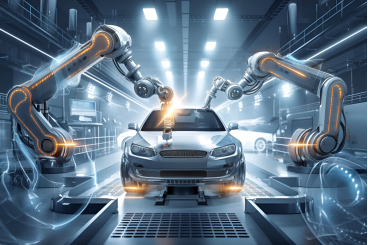As the global automotive industry undergoes rapid transformation, China's automotive sector is at a critical juncture of upgrading and transformation.
Recently, three major Chinese state-owned automotive enterprises—China FAW Group Corporation (FAW), Dongfeng Motor Corporation, and China Changan Automobile Group—have each outlined their development goals in an effort to gain an edge and stand out amid fierce global competition.
According to Zhang Xiang, a guest professor at Huanghe Science and Technology College, the official announcements of these development goals not only demonstrate the firms’ strong confidence in their growth trajectories but also reflect their sense of responsibility and commitment as China’s “national team” in the automotive industry.
Specifically, at a media briefing held by China Changan on July 30, Chairman and Party Secretary Zhu Huarong stated that the company’s strategic goal is to build a world-class automobile group with global competitiveness and independent core technologies. Over the next five years, China Changan plans to launch over 50 new energy vehicle (NEV) models globally, including more than seven high-volume global models (each exceeding 300,000 units), and build a comprehensive NEV brand matrix under Avatr, Deepal, and Changan. In the next decade, Changan will invest approximately RMB 200 billion in the new energy sector, adding a 10,000-person tech innovation team to drive technology exploration and product commercialization. “By 2030, Changan aims to achieve 5 million units in vehicle production and sales, with NEVs accounting for over 60%, and overseas sales making up more than 30%. The company also strives to rank among the world’s top ten auto brands,” Zhu said.
On July 31, FAW held a party congress where Chairman and Party Secretary Qiu Xiandong announced that over the next five years, FAW will adhere to a single strategic positioning. The plan is to complete key adjustment tasks within about three years and lay a solid foundation for transformation within two more years. By 2030, FAW aims to achieve six key goals: total vehicle sales to exceed 5 million units, including more than 3 million intelligent connected NEVs; over 2 million in self-owned brand sales; over 1.5 million intelligent connected NEVs under self-owned brands; and over 700,000 units sold in overseas markets. Additionally, the average income growth of employees is expected to surpass the central SOE average, achieving mutual success in enterprise development and employee well-being.
On August 1, Dongfeng’s newly established Yi Pai Technology held a strategic press conference. Chairman Yang Qing stated that Dongfeng will continue to balance passenger and commercial vehicles, coordinate self-owned and joint ventures, and accelerate the development of its NEV business. Building on the goal of 1 million self-owned NEVs, the company is now pushing toward 3 million NEVs, aiming to restore overall sales to 4 million units and strive for even greater achievements.
“The strategic goals in key areas such as NEVs and globalization set by the three major state-owned auto enterprises are not isolated strategies, but deeply aligned with the national top-level design for automotive industry transformation,” said Lin Shi, Secretary General of the Intelligent and Connected Vehicles Branch of the China-Europe Association for Technical and Economic Cooperation.
Starting in 2024, the State-owned Assets Supervision and Administration Commission (SASAC) of the State Council will separately assess the NEV businesses of the three auto SOEs. This policy change moves away from traditional profit-based evaluations and incorporates key indicators such as market share and technological innovation, providing crucial institutional support and growth momentum for the realization of these ambitious goals. It encourages bold innovation and active exploration.
Zhang Xiang added that against the backdrop of the global shift toward new energy and intelligent mobility, China’s three major auto SOEs—with their strong technological capabilities, complete industrial layouts, and robust market influence—are leading the high-quality development of China’s automotive industry. They are helping China transition from an automotive powerhouse to an automotive superpower. With their demonstration effect, China’s automotive industry is set to shine brighter on the international stage, contributing more Chinese wisdom and solutions to the global auto industry.
Declaration: This article comes from Securities Daily.If copyright issues are involved, please contact us to delete.
